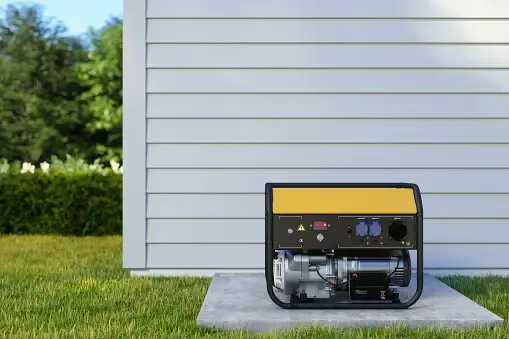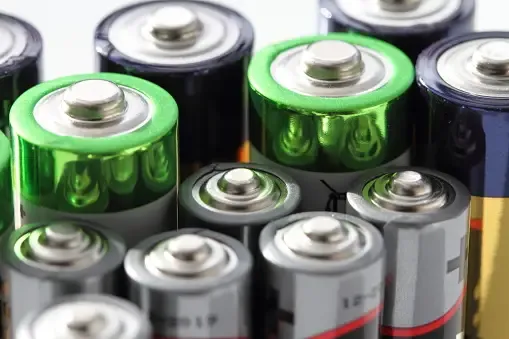
Which is Better, a Generator or a Battery?
In today's world, having a reliable backup power source is crucial, whether for your home or business. When the grid fails, you need to know your options: a generator or a battery. Each has its pros and cons, and understanding these can help you make the best decision for your specific needs. This guide will delve into the efficiency, cost, environmental impact, and convenience of both options, ensuring you have all the information you need to choose wisely.
Understanding Generators
Generators have long been the go-to solution for backup power. They run on fuel, typically gasoline, diesel, or propane, and can provide a significant amount of power for extended periods. This makes them ideal for situations where power outages are frequent and long-lasting.
Pros of Generators:
High Power Output: Generators can produce a large amount of electricity, making them suitable for powering entire homes or businesses.
Extended Use: As long as you have fuel, a generator can run continuously, which is crucial during prolonged outages.
Lower Initial Cost: Generally, generators have a lower upfront cost compared to battery systems.
Cons of Generators:
Noise and Emissions: Generators can be noisy and emit harmful gases, which can be a significant drawback in residential areas.
Fuel Dependency: The need for a constant fuel supply can be problematic, especially during disasters when fuel availability might be limited.
Maintenance: Generators require regular maintenance to ensure they function correctly when needed.
Understanding Batteries
Battery backup systems, especially those using lithium-ion technology, have gained popularity in recent years. They store electricity from the grid or renewable sources like solar panels, providing a quiet and clean power source during outages.
Pros of Batteries:
Quiet Operation: Batteries operate silently, making them ideal for residential use.
Clean Energy: Battery systems produce no emissions, contributing to a greener environment.
Low Maintenance: Once installed, battery systems require minimal maintenance compared to generators.
Cons of Batteries:
Higher Initial Cost: The upfront cost of battery systems can be significantly higher than generators.
Limited Power Supply: Batteries have a finite amount of stored energy, which may not be sufficient for extended outages.
Lifespan: Over time, battery capacity degrades, necessitating eventual replacement.
Efficiency: Power When You Need It
Generators are traditionally known for their ability to provide large amounts of power quickly. They are excellent for high-demand situations, such as powering an entire home or running heavy machinery. Generators run on fuels like gasoline, diesel, or propane, which means as long as you have fuel, you can generate power.
On the other hand, batteries store electricity and provide a quieter, more eco-friendly solution. Modern battery systems, especially lithium-ion batteries, have improved significantly in capacity and efficiency. They can be charged from the grid, solar panels, or wind turbines, offering a versatile and sustainable power source. While batteries might not provide as much immediate power as generators, they are perfect for lower, consistent energy needs and can be combined with renewable energy sources for a greener solution.
Cost: Short-Term vs. Long-Term Investments
When it comes to cost, generators often have a lower initial price tag compared to battery systems. A small portable generator can be quite affordable, making it an attractive option for quick and temporary power needs. However, the cost of fuel and maintenance can add up over time. Generators require regular servicing, fuel, and oil changes to keep running smoothly.
Batteries, although more expensive upfront, tend to have lower operating costs. Once installed, they require minimal maintenance, and the cost of recharging them is often negligible, especially if you are using renewable energy. Over the long term, batteries can be more cost-effective, especially with the decreasing prices of lithium-ion batteries and the potential for integration with solar panels, which can further reduce costs.
Environmental Impact: Clean Energy vs. Fossil Fuels
Generators, depending on the fuel they use, can have a significant environmental impact. Burning fossil fuels like gasoline and diesel releases carbon dioxide and other pollutants into the atmosphere. This contributes to air pollution and climate change. Although there are cleaner options like propane and natural gas, they still have a carbon footprint.
Batteries, particularly those charged with renewable energy, offer a much cleaner alternative. When paired with solar panels or wind turbines, battery systems can provide a nearly zero-emission power solution. Even when charged from the grid, batteries are generally more environmentally friendly than generators because they can store off-peak electricity, which is often cleaner.
Convenience: Plug and Play vs. Maintenance
Generators are known for their reliability in emergencies. They can be quickly set up and started, providing immediate power. However, they can be noisy, require fuel storage, and need regular maintenance to ensure they are ready when needed. For short-term outages, generators are often the go-to solution.
Batteries, in contrast, are incredibly convenient for day-to-day use and long-term preparedness. Once installed, they operate quietly and automatically, providing seamless power during outages. There’s no need to refuel or perform frequent maintenance checks. This makes batteries ideal for those who prefer a set-it-and-forget-it approach to their backup power.
Conclusion
Choosing between a generator and a battery depends on your specific needs and circumstances. If you need a high power output for short periods, such as during severe weather events, a generator might be the better choice. They are less expensive upfront and provide reliable power as long as you have fuel.
However, if you are looking for a sustainable, quiet, and low-maintenance option, a battery system is worth considering. With the added benefit of integration with renewable energy sources, batteries can provide long-term savings and environmental benefits.


